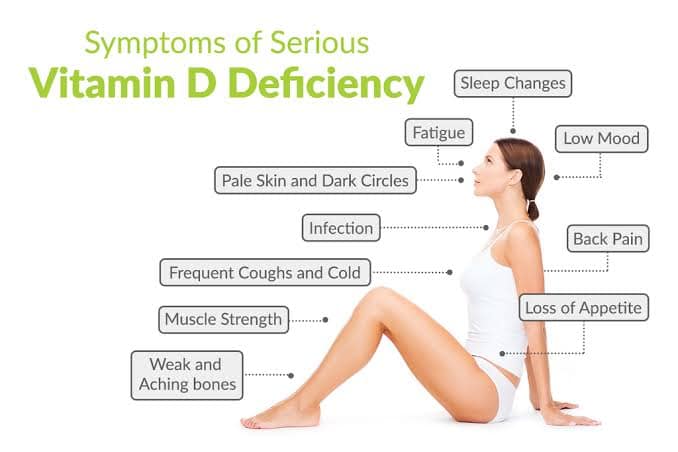2020-09-02 23:12:23
Vitamin D


Vitamin D
What does vitamin D do?
Vitamin D helps your body absorb the calcium it needs to keep your bones and
muscles strong and healthy.
Sources of vitamin
D:
Most Australians get their vitamin D when they expose bare skin to ultraviolet
B (UVB) light from the sun.
Food alone cannot provide an adequate amount of vitamin D and most people are
reliant on sun exposure to reach recommended levels. Foods that contain small
amounts of vitamin D include fatty fish (such as salmon, mackerel and herring),
liver, eggs, margarines and some milk products. Infant formula is fortified
with vitamin D in Australia.
Sun exposure and
vitamin D:
The amount of time you need in the sun depends on several things, including
where you live, the season, time of day, your skin colour and the amount of
skin exposed. However, during summer, most people can get adequate vitamin D
from just 5-10 minutes outside. It’s important to avoid the high UV times, so
mid-morning or mid afternoon is best. Always follow safe sun guidelines because
too much sun can increase your risk of skin cancer and may cause the vitamin D
in your skin to break down.
What happens if I
don’t have enough vitamin D?
Moderate to severe vitamin D deficiency can lead to rickets (soft bones) in
infants and children.
Low vitamin D levels can lead to osteoporosis and increase your risk of falls
and fractures (broken bones) if you are over 50. Vitamin D helps your body to
absorb calcium, while not having enough can increase your risk of developing
osteoporosis.
Research suggests that vitamin D could play a role in the prevention and
treatment of a number of different conditions, including type 1 and type 2
diabetes, hypertension, glucose intolerance and multiple sclerosis.
Who is at risk of
vitamin D deficiency?
You may be at risk of vitamin D deficiency if you:
- Stay mostly indoors for health, work or other reasons
- Have naturally dark skin
- Avoid the sun for skin protection or due to medical reasons
- Are obese
- Take medicines that cause vitamin D to break down
- Are a baby of a vitamin D deficient mother.
Do I need a vitamin
D test?
You may need a vitamin D test if you are at risk of vitamin D deficiency.
A vitamin D test is a simple blood test that measures a form of vitamin D in
your blood called 25-hydroxyvitamin D (25-OHD). This test is usually only done
in people at risk of osteoporosis and needs an assessment and referral by a
doctor. Talk to your doctor if you think you need a vitamin D test.
The best time to test for vitamin D is at the end of winter or in early spring when your vitamin D levels are at their lowest.
How is vitamin D
deficiency treated?
If you have a mild deficiency then your doctor may recommend a few simple
things such as:
- Increasing your sun exposure
- Increasing dietary calcium
- Increasing physical activity
- Taking a vitamin D supplement.
If you have a moderate to severe deficiency then you might need to take a high-dose supplement and repeat the blood test in three months' time. Your doctor will discuss this course of treatment with you.

